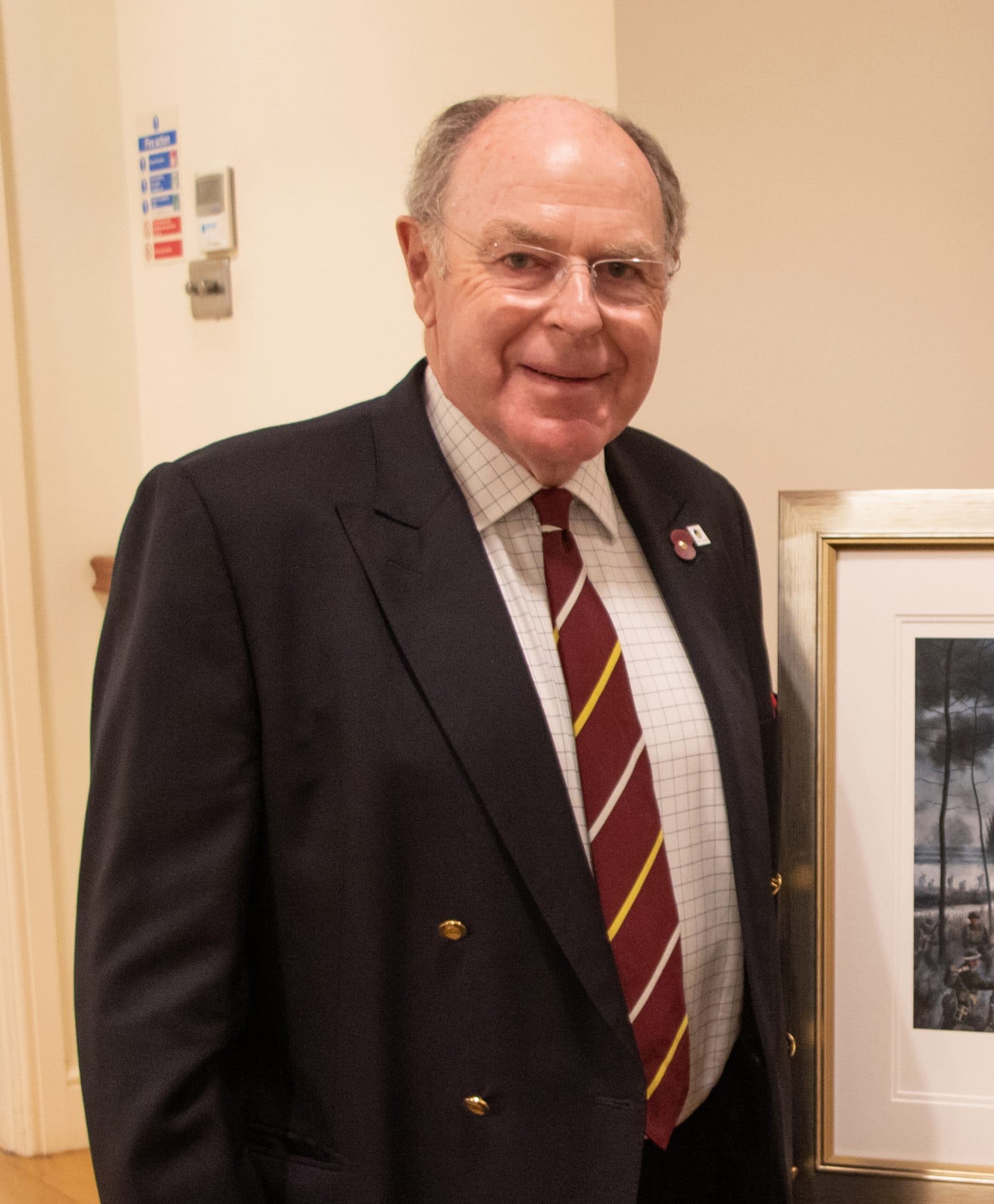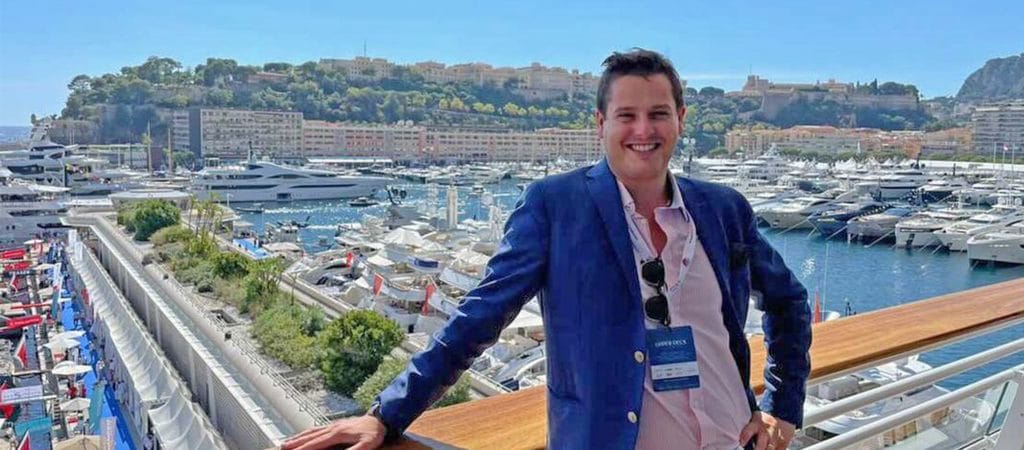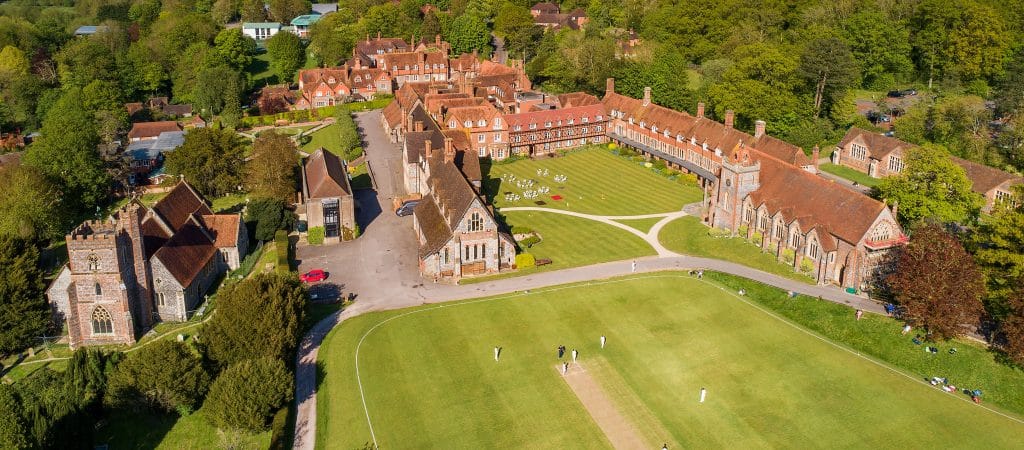In November last year, Andrew returned to the College to speak with a number of pupils studying History on the 30th anniversary of combat in the Gulf War. He also presented the College with a specially commissioned painting depicting his grandfather’s heroic action which is now on display in Bloods Corridor near the Memorial Cross.
Along with his grandfather and Andrew himself, his father, brother and cousin all served in the Army or Navy, a strong family Military tradition. His father was still serving in Germany throughout most of his childhood which meant journeys home for the holidays were lengthier than most. Fortunately, the Army would pay for the flights to Germany for two holidays a year but for the third Andrew’s father found a novel way to encourage him to be enterprising.
“He wanted me to be a little adventurous and push the boundaries so he would give me the money for a boat and train ticket to get back to Germany but would say if I could get home any other way, on my own devices, then I could keep any money I saved in doing so.”
Bearing in mind that at the time neither the M4 or M25 existed, it is quite remarkable that one Christmas the young Bradfieldian managed to hitchhike first to Theale, then onto Dover before getting another lift on the other side of the channel all the way back to Germany. “It took me less than 24 hours and it hadn’t cost me a penny. It made me a nice Christmas bonus that year.”
It was during his time at the College that he first put on a uniform, while a part of the CCF. “It’s always something that I remember and I loved it. Nigel Suffield-Jones was the inspiration for me.” Under Nigel’s guidance Andrew was able to set up what they called the Arduous Training Programme. “It was basically Brecon Beacons camping and yomping over the hills. We purchased all the equipment for the CCF Stores and it was a significant part of my time at Bradfield.”
There were many other influential figures and experiences. Andrew reflects on enjoying his time as Captain of Fencing as well as his involvement with the historic Bradfield Club in Peckham and the grounding those trips provided him and his peers. Charles Lepper is remembered fondly by many and Andrew loved being part of the cast of The Merchant of Venice performed in the Greek Theatre which Lepper directed.
“There is no doubt that the opportunity to be educated at a place like this was, and still is, an incredible privilege. I was fortunate as is any pupil whose fees are subsidised by the Military, the diplomatic service or by corporate organisations.”
National Service ended during Andrew’s time at Bradfield but with Military ties that run as deep as his, he contemplated nothing other than a career in the Army. “Sometimes I think I was very unimaginative, but I didn’t think twice. I went into the family business and joined the same regiment as my father and grandfather. They were both in the Royal Northumberland Fusiliers and I joined the Royal Regiment of Fusiliers.”






